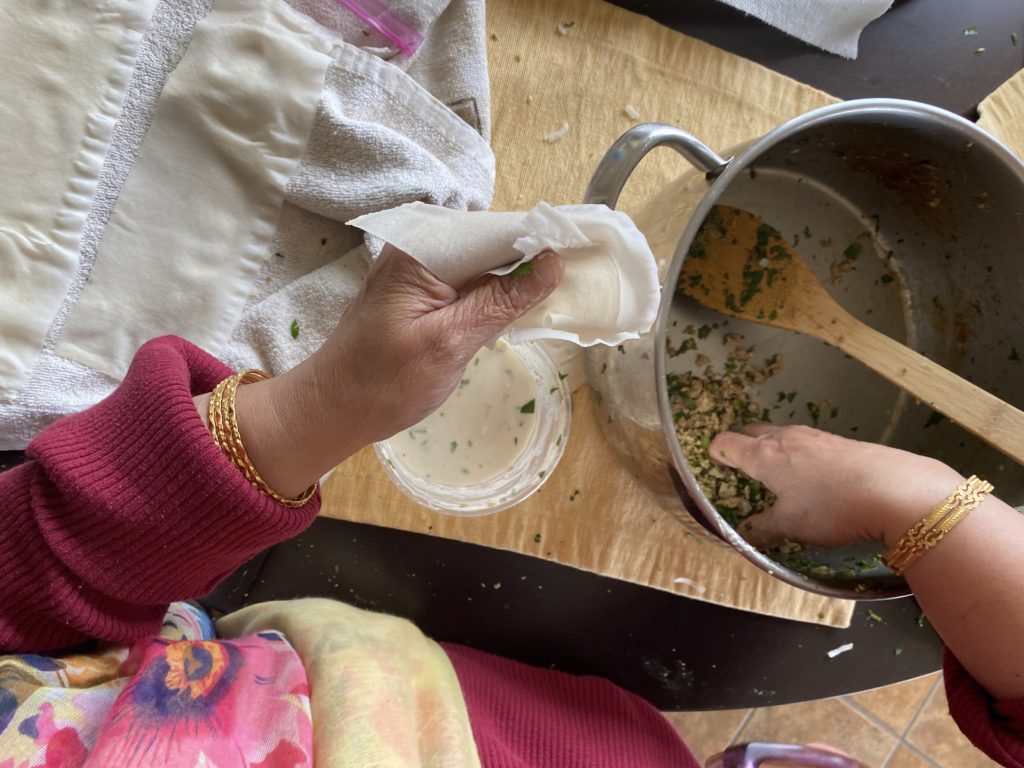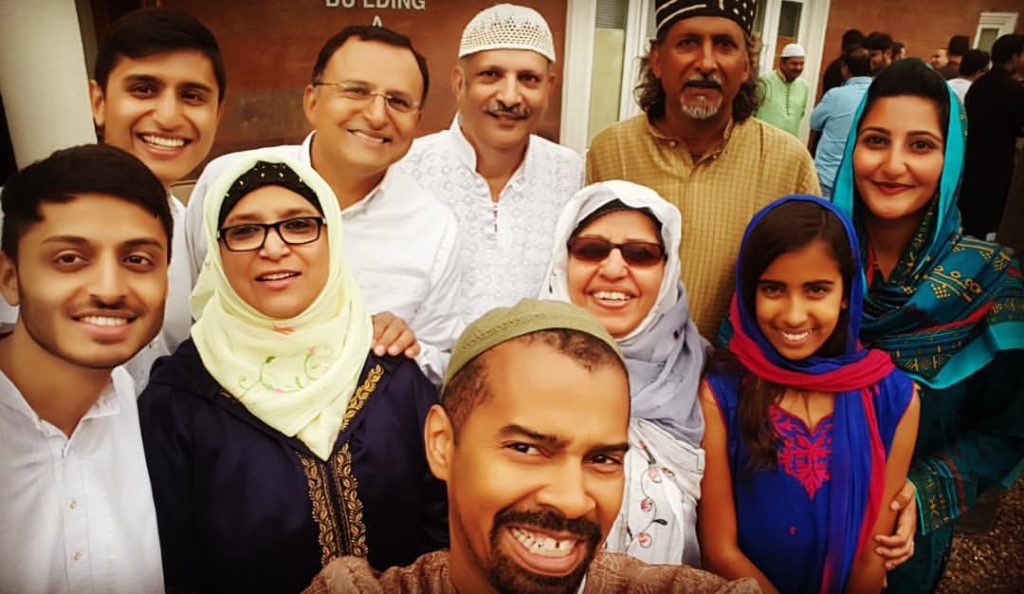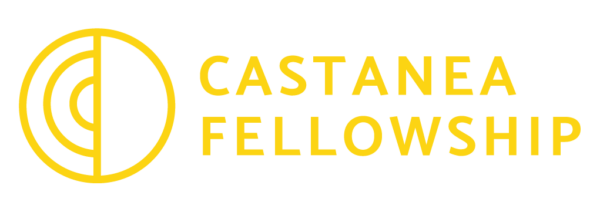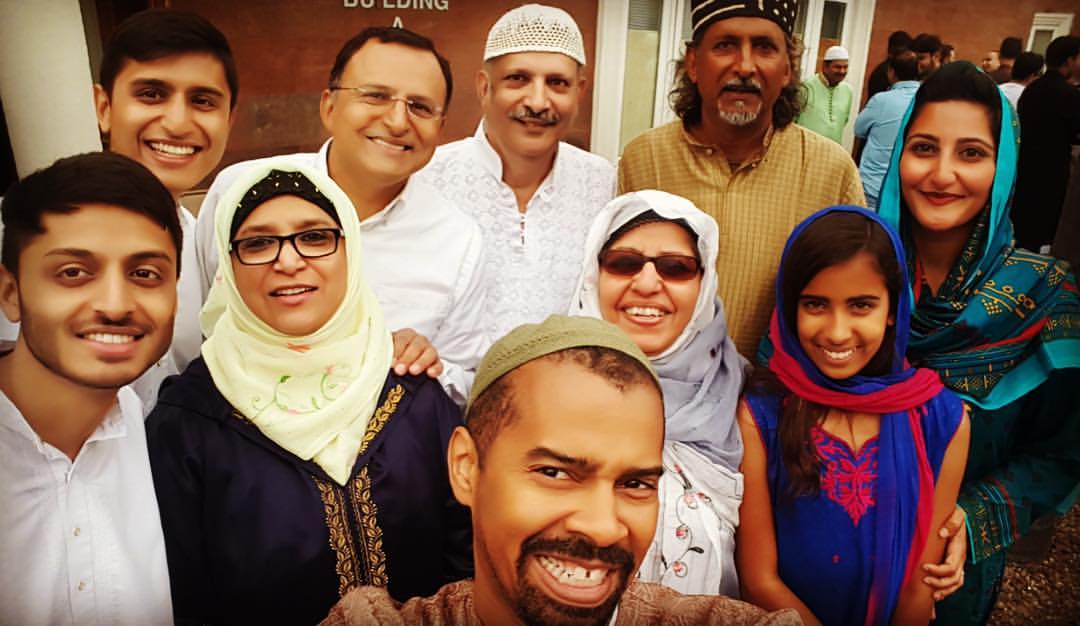Did you know I’ll be fasting for the next 30 days?
I have not always been public about my fasting, but it is my most consistent practice as a Muslim, as I have performed this annual ritual since the age of 12. It connects me to food, discipline, privilege, and generosity in profound ways.
Why am I telling you this? Well…..because I may be more vulnerable (and perhaps a bit crankier!) than usual and as my community I want you to understand why I am still doing this during COVID-19 and what it might mean for you.
Starting tomorrow I will join 3.45 Muslims in the United States who will for 30 days abstain from food and drink while the sun is visible in the sky. It is a core practice of Islam and I was raised in a household that always connected it to the values of social justice. For me, it’s been more of a personal spiritual practice than a religious one, even though they are connected. It has made me wonder “How Muslim am I?” I am a proud one, though not a perfect one. And each of our diverse traditions are important now, more than ever.

Fasting connects me to food in new ways. When you purposefully choose not to eat or drink, you realize what that does to your mind and body:
- The first week is usually the easiest, the hardest part being waking up before the sun rises to eat, but I manage (thanks to my sweetie Dwayne). I also notice all my habits, like coffee twice a day, that I have to stop.
- The second and third week, I am much slower–in my ability to respond or stay alert. I have to be attuned to my more basic needs, and high-level conversations can be particularly draining. I can seem aloof to others.
- The fourth week I am my most reflective, since I know the conclusion is near. It is a time to gather with family, think about what we will cook for our celebrations, and reestablish connections with distant relations that I miss dearly. This year, of course, it is difficult to predict what Eid will be like during COVID-19.
Luckily, many organizations and faith community leaders like Linda Sarsour and Dustin Craun from MPower Change have been doing work to think about how to connect and build a digital Ramadan this year, I am grateful to them and their work.
As an Executive Director, the practice is not always conducive for my work environment. Especially when most of the people I work with do not fast.
This is a busy time for us, like many of you. We are on the cusp of announcing the 2020 Castanea Fellows, plus pivoting and developing a Castanea Fund to support the emerging work on the ground—it’s not the best time for me to be “slow,” but honestly this is not the best time for any of us, really. When May approaches, we will also be embarking on our two Learning Immersion Retreats, which like much of our reality now must be done virtually.
In my own planning, I had not considered changing my work schedule to compensate for fasting because having a minority experience in a dominant culture has made me aware that tolerance for such considerations is limited to say the least. As a consequence, in some years past, when the demand for work increased unreasonably, it has challenged my ability to maintain the fast through the end of the season.
Will I feel the pressure to stop fasting? I’m sure I will, but I hope I don’t.
Before COVID-19, when I would fast, my Mom would remind me, “Remember when the sun sets, you can eat, think about how many people cannot eat. That’s why we fast, to remember what it’s like to not have and to share and give as much as we can.” This year, the number of the newly hungry is growing exponentially. Family and friends lost to the pandemic will bring new, unanticipated grief to many of us. The number of systems failing poor, working-class, Indigenous, Black, and People of Color will continue to be devastating. And I’ll be choosing not to eat? It does not make sense, but it does.
Empathy, radical empathy, is what this practice gives me and that is something we all need right now. In our justice communities, I find time and time again that most of us are trying to ignore very real and present trauma we are experiencing that has been unearthed by COVID-19 in order to address the systems that perpetuate inequity and leave our populations vulnerable to this pandemic. It is a daunting, unsustainable task, and we have to support each other to find our way through.
So as Ramadan makes my mind slow, I want to reserve time to pay attention to some basic needs:
- Food ~ What does food mean to me? On a personal level, as well as through my work with food system leaders: How can I shift the work towards long-term impact for more regionalized food systems and food sovereignty? How can feeding the hungry establish pathways for folks to be able to connect to and easily get food that reminds them of their homes? Read this short story about my Mama and I making samosas.
- Allyship ~ What does community mean to me? I will be working on being the best ally I can, while centering BIPOC leadership and utilizing my gifts where they are most helpful. See this webinar series we are working on with BIPOC farmers and food activists.
- Creativity + Joy ~ What will nourish me when food and water cannot? Mental wellness is part of our survival. Practices of gratitude, being creative, and allowing for joyful moments feeds my soul. We need that.
I invite the Castanea Fellowship community to join me in slowing down and practicing radical empathy. It will be a practice I welcome to help me slow down and be gentle with myself, but you can use whatever inspiration works best for you to do the same in these tumultuous times.
I want to offer us the space to build community more creatively.
Even as we all prepare to come together in new ways, from a distance and virtually, I hope we can bring our full selves and be gentle with one another while giving each other space, connection, and solidarity. This is a time where our collective actions are as important as community care.
Hold me to this promise, connect to more than your work and hold space for you.
Ramadan kareem and peace unto you and yours.
Yours In Fellowship,
Farzana


